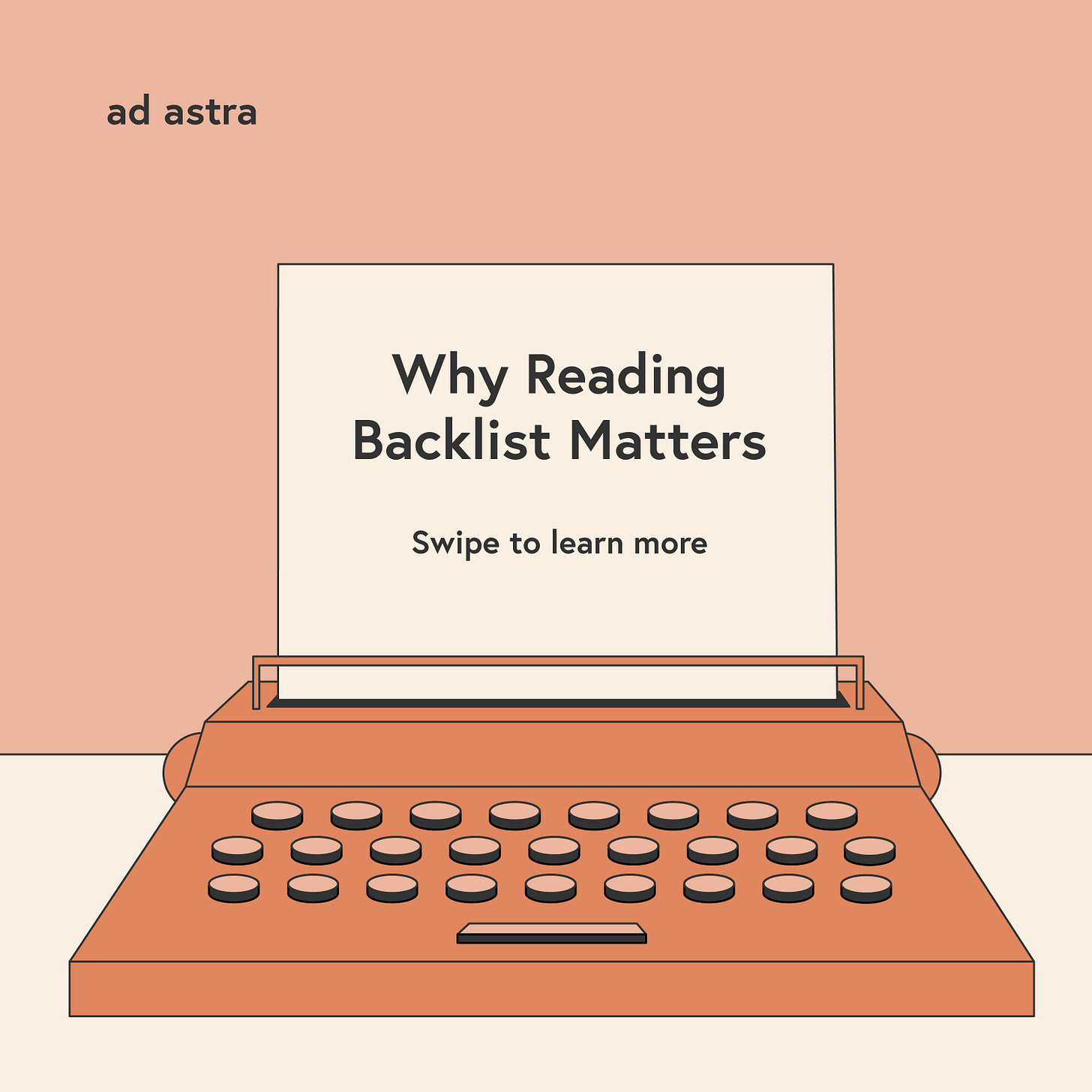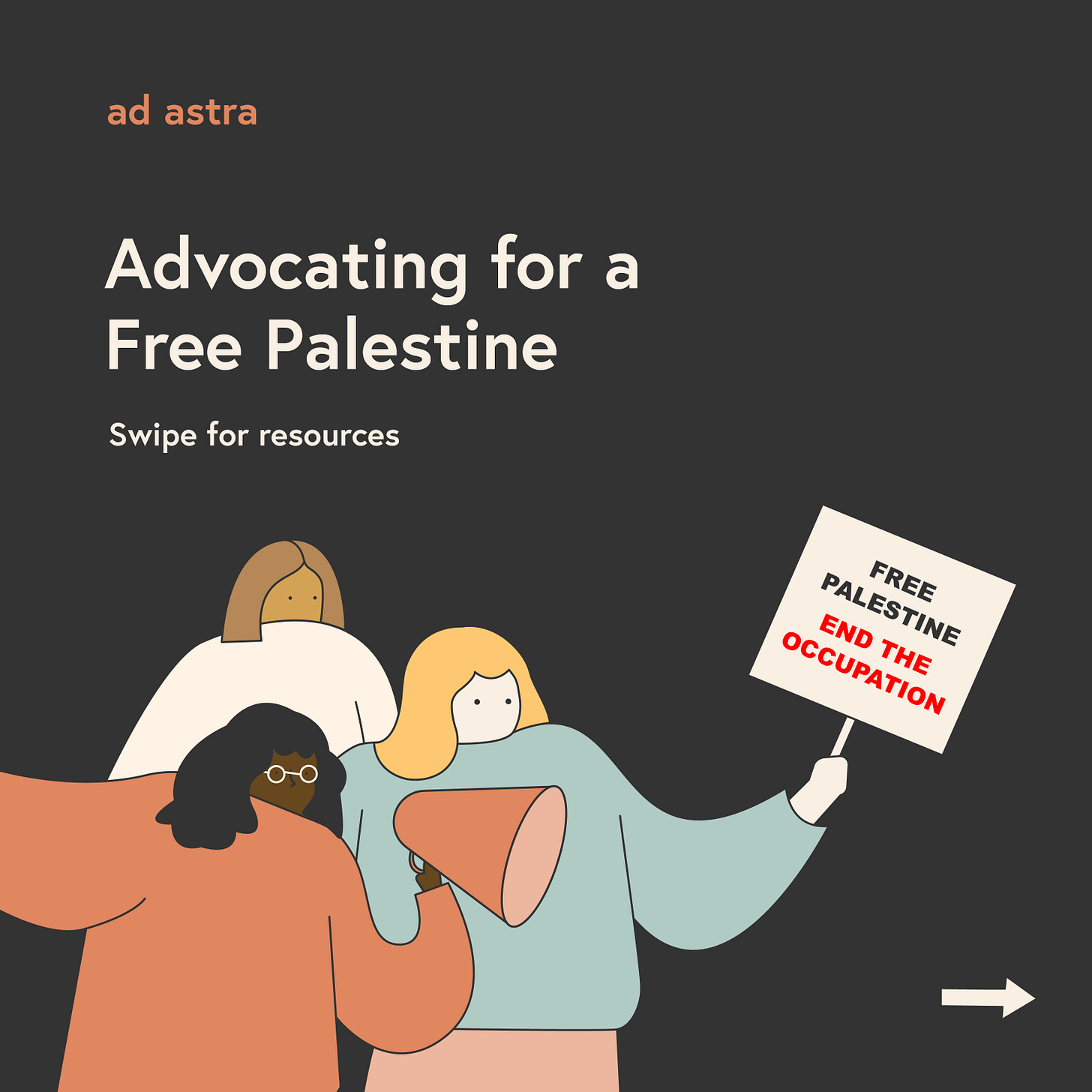Volume XXXIV: No, a Book’s “Worth” Is Not Determined By Its Marketing Budget
Backlist reads and unpublicized titles deserve readers’ attention, too
Introduction
There are numerous ways for readers to discover their next book: social media, review outlets, awards, celebrity book clubs, and online ads, just to name a few. But all of these are shaped by publisher investment, and investment requires resources that only certain publishers have—and that only certain books receive.
Scroll through your social media apps on any Tuesday—the day new books are released—and you’re likely to see the bookish content creators you follow all featuring the same books. Even if you follow a diverse range of content creators, this can be the case. Why? The books that get advanced copies and influencer campaigns are dependent upon one main thing: a publisher’s investment.
In today’s publishing world, a book depends upon marketing, publicity, and sales support to garner attention. Depending on the size of the publishing house, these resources might be smaller or larger to begin with. But even at the Big Five, not every book receives the same level of support; in fact, the support varies dramatically. But while a publisher’s investment (or lack thereof) might determine how a book performs, it definitely does not determine the overall worth of a book.
In this newsletter issue, we’ll be diving into how publishers fabricate success and how to find books beyond what publishers invest in.
A Deeper Look
Success in publishing is often fabricated. That’s not to say that all of the books publishers invest in aren’t worthy of said investment, but rather that many are given attention simply because a big name is attached, a celebrity’s book club expresses interest, etc. And, as many of our readers know, this investment has historically been in books by white, cishet, abled authors because they’re (baselessly and discriminatorily) considered more “accessible” and therefore “sellable.”
Especially in a technology-driven age when so many of us discover our next read online, the impact of a publisher’s investment can be huge. Think about it: Publicity and marketing teams are told what needs to sell by editorial teams (afterall, they are the ones offering advances to authors). These teams are pressured to not just make back the upfront investment in a book, but outperform. Subsequently, they then put money into a book’s campaign to encourage sales, meaning we’re more likely to see that book. The publicity team will submit the book to more review outlets, more awards, increasing the odds that it gets pre-release buzz. The marketing team will send copies to influencers, create digital ads for Amazon, Bookshop.org, Barnes and Noble, and other online retailers. They’ll pitch it to celebrity book clubs, run collaborations with brands with similar audiences, and maybe even make merch. And the more we see this book, the more likely we are influenced to buy it, only creating even more buzz for the book as sales increase. This cycle repeats itself, as the authors then receive more investment from a publisher in future releases. If all pays off, this exemplifies fabrication at its finest.
But the reverse is true as well. Publishers only have so much money to spend on marketing campaigns and due to notorious understaffing, there is only so much bandwidth for teams to take on. (And, of course, there’s the issue again here of which type of books/authors are deemed “worthy” of investment.) So when a book doesn’t receive a company’s investment, it likely misses out on a number of opportunities that the “A titles” do receive. And because there are a huge number of books published each year and because of resources being skewed, most books won't sell enough to help authors break out of the vicious cycle—or to reach our feeds.
But whether or not a book makes its way onto our feed shouldn’t shape our perspective of it. Small presses don’t have the budgets that bigger ones do. And, as mentioned earlier, the books that are deemed “inaccessible” to most readers because they are by and/or about BIPOC, LGBTQIA+, and/or disabled authors and don’t receive funding are a part of systemic and structural erasure. We also can’t forget the millions of backlist books—pretty much anything that’s not a new release—that don’t receive publishers’ attention. These books all play a vital role in the publishing ecosystem, and can be just as—and more—valuable to readers.
Why?
Indie publishers are necessary for a diverse publishing ecosystem. They’re more likely to be mission driven, nonprofits, and/or rooted in equitable initiatives. By being more conscious in our support of independent presses, we can help them thrive and a broader ecosystem flourish.
And—something that shouldn’t even need justification or an explanation in 2024—books by authors that have been historically excluded from publishing reflect our world, enriching our bookstores, libraries, and personal shelves. Our world is diverse, and what we are publishing and reading should be too.
Backlist books are important for a number of reasons, including:
They sell rather predictably, providing a steady stream of income for authors, publishers, and booksellers;
They provide readers with more options and ways to support beloved authors;
They fund the frontlist and those big marketing budgets few titles receive;
And they build a bookstore’s unique identity.

Ways to Respond
Now that we know why reading beyond what’s trending is important, how can we go about discovering these lesser known and/or no longer promoted books?
Follow independent publishers on social media, look through their seasonal catalogs (which can be found on their websites), and/or peruse the new release/preorder section of their websites.
If they have newsletters, sign up for these, too!
Some of our favorite independent publishers include:
Here are lists of Black-owned, ANHPI-owned, Indigenous-owned, and Latine-owned publishers.
Follow and engage with a diverse range of content creators, especially those who feature books you haven’t seen or heard of before, and save books that catch your eye to your TBR.
Join in on reading challenges that encourage you to read outside your comfort zone or beyond the books we see on social media.
Set reading goals that can help you make this habit more natural.
Visit independent bookstores and libraries without a certain book in mind! Make an effort to browse, look at staff recommendations, and just see what catches your eye—especially beyond the new release section.
Used bookstores can be an amazing way to discover a new read. Give yourself an hour to get lost in their shelves and see what you stumble upon.
Need recommendations from the backlist? Check out what is on our 2024 backlist TBR, and the comments of this recent post for great recommendations of books by Palestinian authors.
Ask booksellers and librarians for their recommendations, based on a read you loved.
Follow the authors you love on social media, subscribe to their newsletters, and pick up their new releases when they come out.
See which books these authors are recommending and reading, and make a point of learning more about these books to see if you’d like to read them.
Move away from buying books on Amazon and using Amazon-owned products, so your recommendations are less AI-driven, and more human-driven.
Libro.fm is an Audible alternative that shares profits with the independent bookshop of your choice! They also feature bookseller recommendations and routinely create new playlists featuring books you’ve likely never heard of.
The StoryGraph is a fantastic Goodreads alternative.
Order books directly from your indie bookshop. If you can’t, Bookshop.org is a great way to still support them.
Final Musings
Over the years, publishers have come to rely on big named authors and books to disproportionately account for their sales. As a result, the marketing budgets for such books have only grown larger, widening the gap between these prioritized titles and all others, and only making the payment process for authors worse.
But just like with other aspects of publishing, we readers can create change by being more conscious with our reading choices. By searching for books that are from small presses and by lesser known/publicized authors, we can help change the tide.
We’ll be back in a few weeks with a deep dive into a recent read. In the meantime, make sure to advocate for a free Palestine by contacting your governmental reps, reading Palestinian authors, and more.

We also offer free downloads (wallpapers, templates, and more), and our exclusive downloads for newsletter subscribers (with password newsletterdownloads). If you have any questions, comments, or concerns, don’t hesitate to get in touch via email, the comments below, or Instagram DM.
Xx,
ad astra


Thank you for the list of indie publishers! I just made the switch from Book Of The Month to Green Apple’s book subscription since they’re local and they send books from small presses!